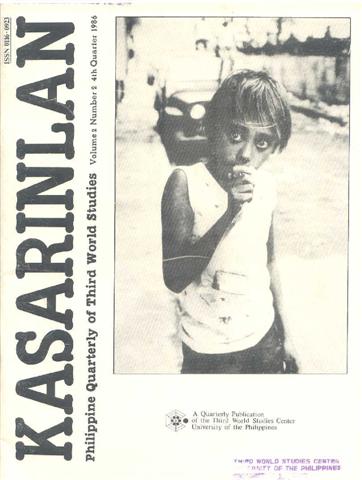Alternatives for a Peripheral Economy in Transition
Abstract
The unresolved economic crisis and the end of the 20-year Marcos dictatorship ushered a period of transition in both the political and economic scene. The ruling political coalition in the Philippines basically consists of a liberal democratic faction and an authoritarian-oriented, rightist bloc, given this situation it is uncertain whether a liberal democratic or authoritarian state will eventually be constituted. The democratic liberal faction, even though it had inherited a debt-ridden and stagnant economy which makes it difficult to sustain a non-interventionist strategy, is aversed to government intervention in the economy. The proposed economic agenda of the democratic liberal faction gives primacy to the role of policies in effecting economic outcomes whether there is stagnation or growth. The assumption is that its policy goals of agricultural development, export promotion, and poverty alleviation are adequate in fostering long-run economic growth and social development. The goal is minimum intervention to effect welfare programs and the promotion of growth in agriculture and the export sector knowing that even though it had inherited a debt-ridden and stagnant economy which makes it difficult to sustain a non-interventionist strategy this can only be realized once all obstacles such as debt obligations and political instability have been overcome. And to resolve poverty, it is imperative to promote capital accumulation and utilize resources but the tasks and process involved departs from the notion of ‘equity’. All of this would have implications in public investments activities, state involvement in research, product and technology development, tax reform, credit extension, and the formulation of policies, which can slowly resolve some of the structural contradictions of the economy.
Published
2007-11-24
Issue
Section
Features
Keywords
economic crisis; liberal economy; Philippine economy; transitional economy
By submitting a manuscript, the authors agree that the exclusive rights to reproduce and distribute the article have been given to the Third World Studies Center.



